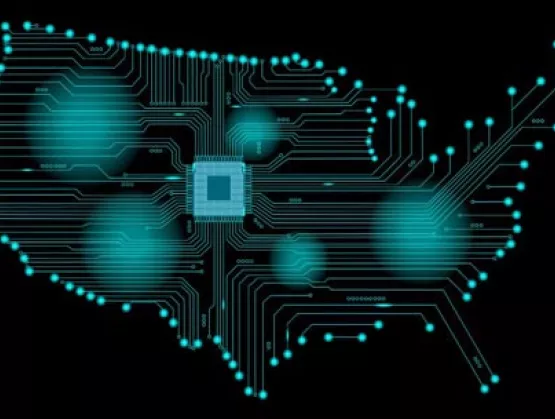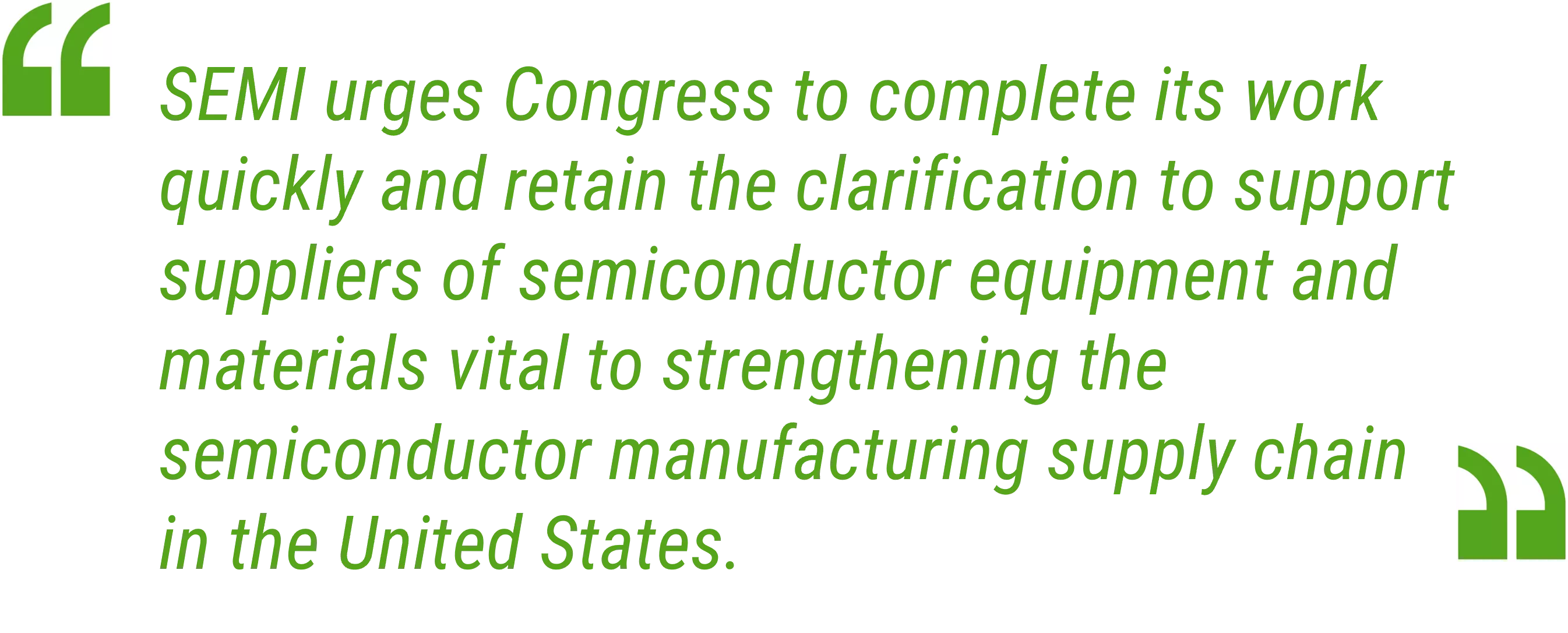
On February 4, the U.S. House of Representatives passed the America Creating Opportunities for Manufacturing, Pre-Eminence in Technology, and Economic Strength (COMPETES) Act by a vote of 222-210. The bill was introduced on January 25 as the House companion to the Senate’s United States Innovation and Competition Act (USICA), which was passed in June 2021.
Mirroring USICA, the COMPETES Act provides $52 billion in emergency appropriations for programs authorized by the CHIPS for America Act. Fully, $39 billion will be allocated to the Commerce Department’s Section 9902 semiconductor incentive program, and $10.5 billion to research and development programs under Section 9906, including the National Semiconductor Technology Center (NSTC) and the National Advanced Packaging Manufacturing Program. The bill also provides $2 billion to fund Defense Department initiatives under Section 9903 and $500 million to fund a Multilateral Semiconductors Security Fund under Section 9905.
The CHIPS provisions of COMPETES include two notable departures from USICA. They include language clarifying that production facilities for semiconductor equipment and materials are eligible for the Section 9902 grant program and authorize $6 billion for Commerce to issue loan guarantees under the Section 9902 program.
 Both bills contain extensive though significantly different trade titles. COMPETES would create an outbound investment transaction review committee, similar to the Committee on Foreign Investment in the United States (CFIUS). The Committee, to be chaired by the U.S. Trade Representative, would have the authority to review certain transactions that may impact “national critical capabilities.” A full definition of “national critical capabilities” will be left to implementing regulations; COMPETES includes language that directs the Committee to review “systems and assets… so vital to the United States that the inability to develop such systems and assets or the incapacity or destruction of such systems or assets would have a debilitating impact on national security or crisis preparedness.”
Both bills contain extensive though significantly different trade titles. COMPETES would create an outbound investment transaction review committee, similar to the Committee on Foreign Investment in the United States (CFIUS). The Committee, to be chaired by the U.S. Trade Representative, would have the authority to review certain transactions that may impact “national critical capabilities.” A full definition of “national critical capabilities” will be left to implementing regulations; COMPETES includes language that directs the Committee to review “systems and assets… so vital to the United States that the inability to develop such systems and assets or the incapacity or destruction of such systems or assets would have a debilitating impact on national security or crisis preparedness.”
Notably, COMPETES excludes a Senate-passed provision to mandate that USTR start a product exclusion process for the Section 301 tariffs. It also includes a provision that prohibits the use of the de minimis threshold for imports from non-market economies and imports that are subject to current enforcement actions, which would include all items subject to the Section 301 China tariffs. These, along with other differences, will be reconciled in the conference process.
Like USICA, COMPETES authorizes appropriations for a wide array of investments in workforce development programs. It would expand STEM education opportunities from pre-K through college, foster diversity and inclusion in technology education, provide STEM scholarships for low-income and underserved communities, support veterans in the STEM workforce, align undergraduate STEM education with workforce needs, and support professional development opportunities for STEM educators.

While SEMI applauds the passage of COMPETES, the House and Senate must conference to reconcile differences between their two bills. SEMI urges Congress to complete its work quickly and retain the clarification to support suppliers of semiconductor equipment and materials vital to strengthening the semiconductor manufacturing supply chain in the United States. Enacting the FABS Act tax credit for investments in the semiconductor supply chain, together with the CHIPS Act programs, will provide a strong, investable policy foundation for the U.S. to compete for the coming wave of new semiconductor manufacturing capacity, support innovation that will ultimately improve our daily lives, and create thousands of well-paid jobs in America.
Recent semiconductor shortages have demonstrated the profound importance chips to countless products and services that are central to our daily lives, powering economic growth and competitiveness. Congress must move to enact incentives commensurate with the central role of semiconductors in our economy and with the urgency demanded by ongoing supply constraints impacting key industries across the country.
Joe Pasetti is VP Global Advocacy & Public Policy at SEMI. Visit SEMI Global Advocacy to learn more about public policy efforts and developments, and SEMI Workforce Development for more information on efforts to address the microelectronics industry’s talent needs.